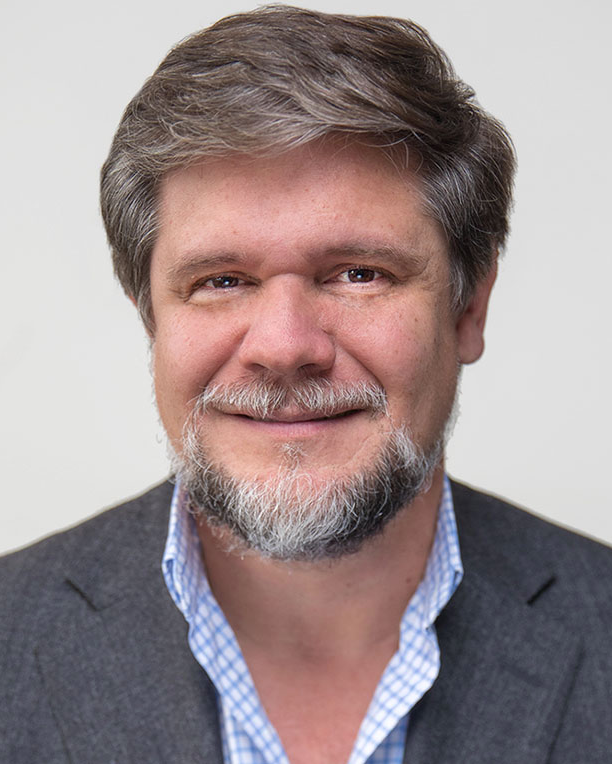Julio A. Aguirre-Ghiso, PhD, is an Endowed Professor of Cell Biology and founding Director of the Cancer Dormancy and Tumor Microenvironment Institute at the Albert Einstein Cancer Center in New York City, where he co-directs the Gruss-Lipper Biophotonics Center and co-leads the Tumor Microenvironment and Metastasis Program also at the Cancer Center. He is also a member of the Stem Cell Institute and Aging Research Institute at Einstein. Previously, he was an Endowed Mount Sinai Chair of Cancer Biology in the Departments of Medicine (Hematology and Medical Oncology), Otolaryngology, and Oncological Sciences and Co-Leader of the Cancer Mechanisms Program at The Tisch Cancer Institute at Icahn School of Medicine School of Medicine in New York City, where he retains and Adjunct Professor position. He is also President of the Metastasis Research Society and has served at several leadership levels at AACR. He received his PhD from the University of Buenos Aires, Argentina in 1997 and completed his post-doctoral training as a Charles H. Revson Fellow at Mount Sinai School of Medicine in 2003. He became an Assistant Professor at SUNY-Albany the same year and since 2008 he was at ISMMS where he joined as Associate Professor and reached the rank of Professor in 2014 and of Endowed Chair in 2020. His work focuses on understanding the biology of residual cancer cells that persist in a dormant state after initial therapy. His research team led, along with others, a paradigm shift, revealing novel cancer biology that diverges from the notion that cancer is perpetually proliferating. His work has been published in top tier journals such as Nature, Nature Cell Biology, JEM, Nature Cancer, Science and Cancer Cell among others. His team discovered that reciprocal crosstalk between disseminated tumor cells and the microenvironment regulates the inter-conversion between dormancy and proliferation of metastasis. His lab has also provided mechanistic advances to the understanding of the process of early dissemination in breast cancer and how it contributes to dormancy and metastatic progression. His work also has mechanistically explored how adaptive pathways such as the unfolded protein response allow cancer cells to persist while quiescent. This knowledge enables targeting residual cancer before it becomes clinically detectable and thus preventing recurrences. His research, which has been applied in clinical studies, is revealing ways to maintain residual cancer dormancy, kill dormant cancer cells, and utilize markers to determine the dormant or active state of disseminated cancer cells.
Our Team
Our Team
Our Team
